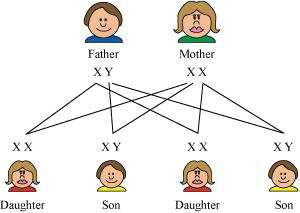
Science – Jammu and Kashmir | jandkncert | Class 8th |
Reaching the Age of Adolescence | Science 8th | Chapter 10 |
Chapter 10: Reaching the Age of Adolescence
Q1. What
is the term used for secretions of endocrine glands responsible for changes taking
place in the body?
Ans. Hormones are chemical
substances which are secreted by endocrine glands. They are responsible for
changes taking place in the body.
Q2. Define
adolescence.
Q3. What
is menstruation? Explain.
Ans. Menstruation
is the process of the shedding of the uterine lining on a regular monthly
basis. It begins at puberty and is the reproductive cycle of the female body.
Every month, the uterus prepares itself to receive a fertilized egg. Therefore,
the inner lining of the uterus becomes thick and is supplied with blood to
nourish the embryo. If the egg is not fertilized, then the lining of the uterus
breaks down and gets released in the form of blood through the vagina. This
lasts for about two to eight days. This cycle occurs every month and is known
as the menstrual cycle.
Q4. List
changes in the body that take place at puberty.
Ans. Changes
at puberty:
(i) A sudden increase in height and weight.
(ii)
Broadening of shoulders and widening of the chest in boys. In girls, the region
below waist becomes wider.
(iii) In
boys, under the influence of hormones, the larynx becomes prominent, the vocal
cords become longer and thicker. These changes cause the voice to become
hoarse.
(iv) The appearance of hair in areas such as underarms, face, hands, and legs.
(v) The appearance of acne as a result of excessive secretion of oil from the skin.
(iv)
Testis grows and starts producing sperms in males, whereas in females, the
ovary enlarges and starts producing matured eggs.
Q5. Prepare
a table having two columns depicting names of endocrine glands and hormones
secreted by them.
Ans.
|
Endocrine
Gland |
Hormone |
|
Testis |
Testosterone |
|
Ovary |
Oestrogen |
|
Thyroid |
Thyroxin |
|
Adrenal |
Adrenaline |
|
Pancreas |
Insulin |
|
Pituitary |
Growth Hormone |
Q6. What are sex hormones? Why are they named so? State their function.
Ans. Sex hormones are chemical
substances produced by sex organs. For example, testosterone is the male sex hormone
produced by the testis, and oestrogen is the female sex hormone produced by the
ovary. These hormones affect the sexual features of an organism. Hence, they
are known as sex hormones.
Functions
of sex hormones:
Testosterone: This hormone brings about
secondary sex characters in boys such as the growth of a beard, the voice becoming
hoarse, development of reproductive organs, etc.
Oestrogen: This hormone is responsible
for the development of secondary sexual characters in females such as the enlargement
of breasts, development of female reproductive organs, etc.
Q7. Choose
the correct option.
(a)
Adolescents should be careful about what they eat, because
(i) proper diet develops
their brains.
(ii) proper diet is
needed for the rapid growth taking place in their body.
(iii) adolescents feel
hungry all the time.
(iv) taste buds are well
developed in teenagers.
(b)
Reproductive age in women starts when their;
(i) menstruation starts.
(ii) breasts start
developing.
(iii) body weight
increases.
(iv) height increases.
(c) The
right meal for adolescents consists of
(i) chips, noodles, coke.
(ii) chapatti, dal,
vegetables.
(iii) rice, noodles and
burger.
(iv) vegetable cutlets,
chips and lemon drink.
Ans.
(a) (ii)
Adolescents should be careful about what they eat because the proper diet is
needed for the rapid growth taking place in their body.
(b) (i)
Reproductive age in women starts when their menstruation starts.
(c) (ii)
The right meal for adolescents consists of chapatti, dal, vegetables.
Q8. Write
notes on −
(a)
Adam’s apple.
(b)
Secondary sexual characters.
(c) Sex
determination in the unborn baby.
Ans.
(a)
Adam’s apple:
Ans. In human males, the larynx
grows larger during puberty and can be seen as a protruding part of the throat.
This protrusion is known as Adam ’s apple. In boys, under the influence of
sex hormones, the larynx becomes prominent. As a result, the vocal cords become
longer and thicker, causing the voice to become hoarse. However, in females,
the larynx is of small size and is hardly visible. Therefore, girls have a high-pitched
voice, while the voice of boys is low pitched.
(b)
Secondary sexual characters:
Ans. Secondary sexual characters
are those features that help in distinguishing the male and the female body from
each other. They are physical or behavioural characteristics that appear in
humans at the time of puberty.
Secondary
sexual characters in boys:
Ans.
(i) The appearance of moustache and beard.
(ii) The appearance of chest hair.
(iii)
Growth of hair in the genital area and other parts of the skin.
Secondary
sexual character in girls:
Ans.
(i)
Increase in breast size and darkening of the skin of nipples present at the tip
of the breasts.
(ii)
Growth of hair in the genital area and other body parts.
(c) Sex
determination in an unborn baby:
Ans. The sex of a baby is
determined by the type of male gamete that fuses with the female gamete. All
human beings have 23 pairs of chromosomes in their nuclei. Out of these 23
pairs, the last pair is known as the sex chromosome. The human males have 23
pairs of chromosomes including XY sex chromosomes. Therefore, the male gamete
has 22 chromosomes and either an X or Y sex chromosome. Male gametes can be of
two types: 22+X or 22+Y. Females have 23 pairs of chromosomes including XX sex
chromosomes. Therefore, their gametes can only have 22 chromosomes and one X
sex chromosome. Type of female gametes is 22+X
 |
| Fig. Sex Determination |
Thus, as the mother provides an only X chromosome, the sex of the baby is determined by the type of male gamete (X or Y) that fuses with the X chromosome of the female.
Q9. Word
game: Use the clues to work out the words.
Across
3.
Protruding voice box in boys
4. Glands
without ducts
7.
Endocrine gland attached to the brain
8.
Secretion of endocrine glands
9.
Pancreatic hormone
10.
Female hormone
Down
1. Male
hormone
2.
Secretes thyroxin
3.
Another term for teenage
5.
Hormone reaches here through the bloodstream
6. Voicebox
7. The term for changes at adolescence
Ans.
Across
3.
ADAM’S APPLE
4.
ENDOCRINE
7.
PITUITARY
8.
HORMONE
9.
INSULIN
10.
ESTROGEN
Down
1.
TESTOSTERONE
2. T
THYROID
3.
ADOLESCENCE
5.
TARGET SITE
6.
LARYNX
7.
PUBERTY
Q10. The table below shows the data on likely heights of boys and girls as they grow in
age. Draw graphs showing height and age for both boys and girls on the same
graph paper. What conclusions can be drawn from these graphs?
|
Age (Years) |
Height(cm) |
|
|
Boys |
Girls |
|
|
0 |
53 |
53 |
|
4 |
96 |
92 |
|
8 |
114 |
110 |
|
12 |
129 |
133 |
|
16 |
150 |
150 |
|
20 |
173 |
165 |
Ans. The graph depicts the relation between the age and height of both boys and girls. During puberty, there is a sudden increase in height of both boys and girls. On the basis of the above graph, it can be observed that during the age of 4-8 years, girls have less height as compared to boys. However, as soon as girls reach 12- 13 years, their height shows a sudden increase and becomes more than boys. In later years, growth in both sexes becomes stable. Growth during puberty is under the control of hormones.










Leave your comment here.